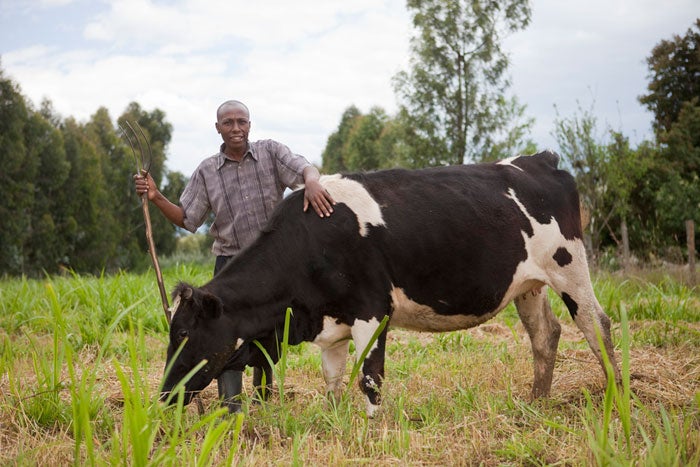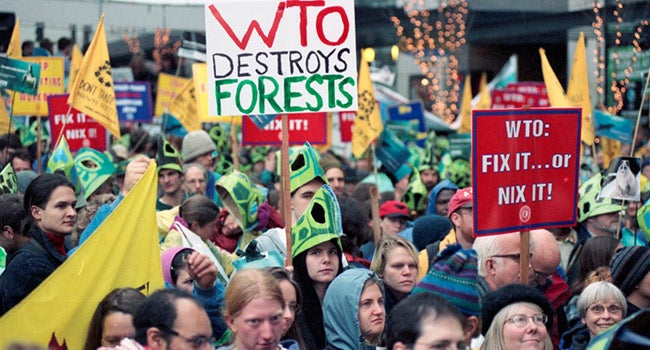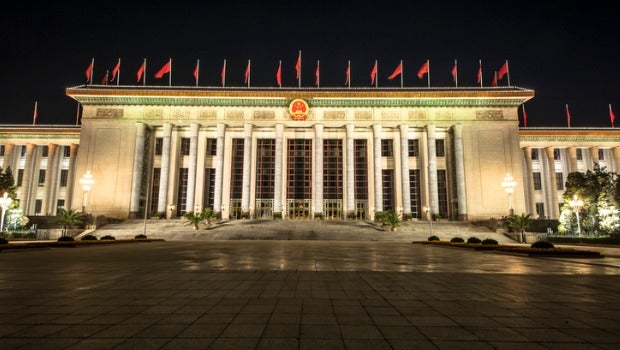The world is facing a food security challenge of unprecedented scale in the twenty-first century. The numbers are familiar, and they are stark: according to the Food and Agriculture Organization of the United Nations (FAO), food production must increase by at least 60 percent in the next 35 years to feed Earth’s growing and hungry population. And food production must meet that rising demand while contending with other crises like climate change, migration, conflict, and disease, which will all affect our ability to grow more food.
More importantly, food production must meet that demand sustainably and equitably, with respect for the environment and the smallholder farmers that make up the backbone of global agriculture. This is no easy task.
Like many of the greatest challenges facing world leaders today, achieving food security — defined as when all people at all times have access to sufficient, safe, nutritious food to stay healthy and active — over the long term requires tight coordination and progress across all sectors. Governments, NGOs, international organizations, and corporations all have a role to play. But who will lead? And where can we focus our resources to make the greatest impact?
Reflecting on our long and shared experience tackling these issues in government, informed by the storied history of farming in our home states and across America, and fueled by the powerful data and evidence on global agriculture markets and innovation, we believe the private sector can provide the greatest improvements in food security. Governments, NGOs, and international organizations must thus not only cultivate values-based leadership in the business community but also empower those leaders in both business and politics who recognize the private sector’s unique potential to meet one of the most pressing challenges of this century.
According to the FAO, global trade in agriculture exceeds $1 trillion each year, or more than 200 times the annual operating budget of the World Food Programme, the world’s largest food aid organization. To put that in perspective, a 1 percent per year gain in the efficiency of global agriculture markets would alone free up enough money to cover all global food aid costs many times over.
The private sector, then, is poised to be the engine for driving sustainability in agriculture and natural resource use over the next 30 years. How? By reinvesting capital in sustainable supply chains, developing nutrient-rich and high-yield crops, creating innovative financial products that increase smallholder farmer access to financing, and developing country-level cooperatives.
To take just one example, efficiency gains in crop development hold enormous potential. As data-driven philanthropists Bill and Melinda Gates outlined in the 2015 annual foundation letter, “American farmers get five times as much maize from their land as African farmers do.” Investment to enhance the efficiency and resilience of Africa’s agriculture sector is a no-brainer — a down payment on the future food security of a continent that, despite its incredible resource potential, continues to spend $50 billion each year to import food.
The history of cooperatives and the agriculture industry offer another example, and one where the history of the U.S. can point the way for the future. Both the U.S. and developing countries show us how investment in disaggregated agricultural markets not only pays dividends to shareholders but also increases sustainability over the long term. The growth of cooperatives was one of the most significant factors in U.S. agriculture’s rapid rise over the past century, combined with government investment in infrastructure like roads and rail, and investment in market-pricing frameworks like the commodities trade.
Cooperatives help farmers get access to the financing they need for growth. The private sector has a significant role to play in bringing small farmers together. Because of cooperatives, today’s agribusinesses can increase crop yields while bolstering food quality and the stability of international trade. The Minnesota-based dairy company Land O’Lakes, for example, has been organizing and strengthening cooperatives in developing countries and increasing farmers’ access to improved seed and animals while also providing education in effective production and economic management.
Harnessing market forces will be necessary to double world food production by 2050. But we must do more than master markets to achieve growth the way it should be done. That will require a dedication to socially and environmentally sustainable investment principles. And it will require corporate leadership that puts a high value on the nutritional quality of food, a sustainable food supply, sensibly using water, and working to ensure climate security.
Using the power of its supply chains to affect change, the Coca-Cola Company is setting a notable example through its sustainable sourcing strategies, empowerment of women and smallholder farmers, and protections of local land rights. By the end of the decade, the company will have spent $17 billion in Africa developing new manufacturing lines, installing cooling and distribution equipment, and implementing safe water initiatives like sustainable sourcing, and supporting women’s economic empowerment and community well-being.
The quality and not just quantity of food — its nutritional value — is inextricably linked to global food security. On a planet where one in nine people is undernourished and more than 1.4 billion people are overweight or obese, the private sector must prioritize “sustainable calories” and recognize that the return on investment in nutritious food will deliver greater value over time. DuPont’s Nutrition and Health division collaborates with the public and private sectors to develop science-based food ingredient and food protection solutions that improve the health profile, quality, and safety of food. The Global Food Security Index, a unique and progressive collaboration between DuPont and the Economist Intelligence Unit, is an important step in bringing nutrition food security planning to the forefront. The index measures food security across 109 countries based on 28 indicators including diet diversification, protein quality, nutrition standards, food waste and obesity. Each of these indicators is critical to addressing the global challenge of malnutrition.
Climate change is also an inextricable part of food security, and here the reinsurance industry has been taking the lead in addressing risks from extreme weather such as floods and droughts. Swiss Re has created new insurance products that protect companies’ weather-related earnings and prevent losses from weather and commodity price shocks. The company has also developed new types of crop-shortfall insurance, weather-based index coverage, and structure price hedges for businesses concerned about low production caused by unpredictable weather.
With all of this potential, what models of private leadership should be promoted as setting the gold standard? How should corporations engage with governments and NGOs working on food security issues? In the future, categorizing this type of work under the umbrella term “public-private partnerships” will be insufficient as a guide for change. We believe that clearer conceptions for what enlightened private sector approaches look like must be discussed and established.
Food security conversations today need to build from an understanding of initiatives like the ones now happening on the ground. There is broad agreement on the need for sustainable intensification of agriculture in order to increase both yields and nutritional quality of crops; and to consolidate and empower smallholder farmers, particularly women farmers, to increase their economic power and improve their access to the global food trade. How this will happen — and what kinds of private sector investments will be needed to make it happen — is the great puzzle of our day. Our job is to help fit together the puzzle pieces of private sector leadership to ensure the globe’s long-term food security.


